GVSU Assessment Conference 2025

The Office of the Provost and the Pew Faculty Teaching and Learning Center reignited our annual GVSU Assessment Conference for 2025! The event was held on Friday, January 10, 2025, at the Eberhard Center (room 215).
Thank you to everyone for your participation in our assessment conference. Your contributions made it a resounding success!
Several presenters have generously shared their presentation slides. You can find these materials now posted below linked to their respective presentation titles.
Thank you once again for your engagement and dedication to our culture of assessment at GVSU!
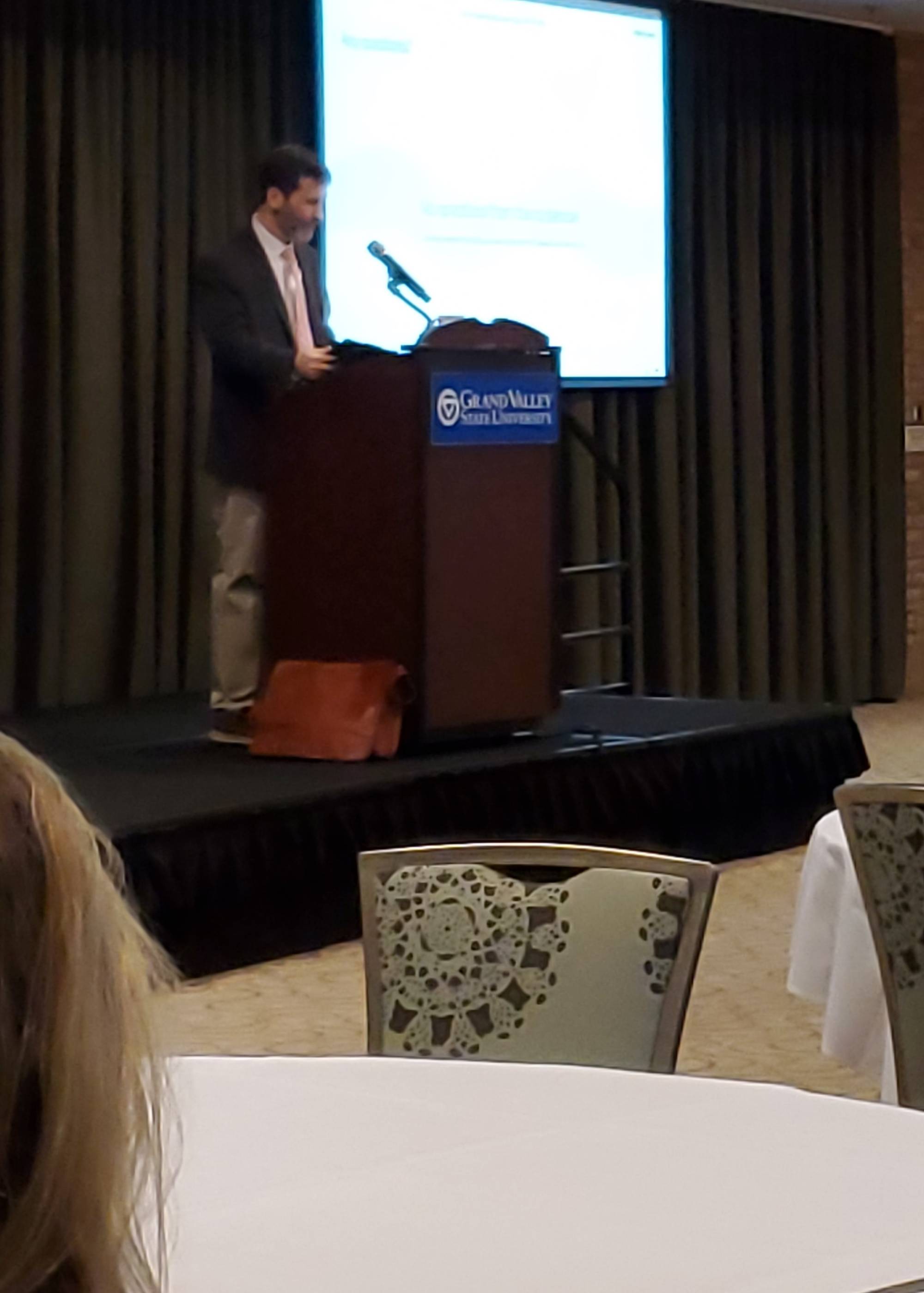
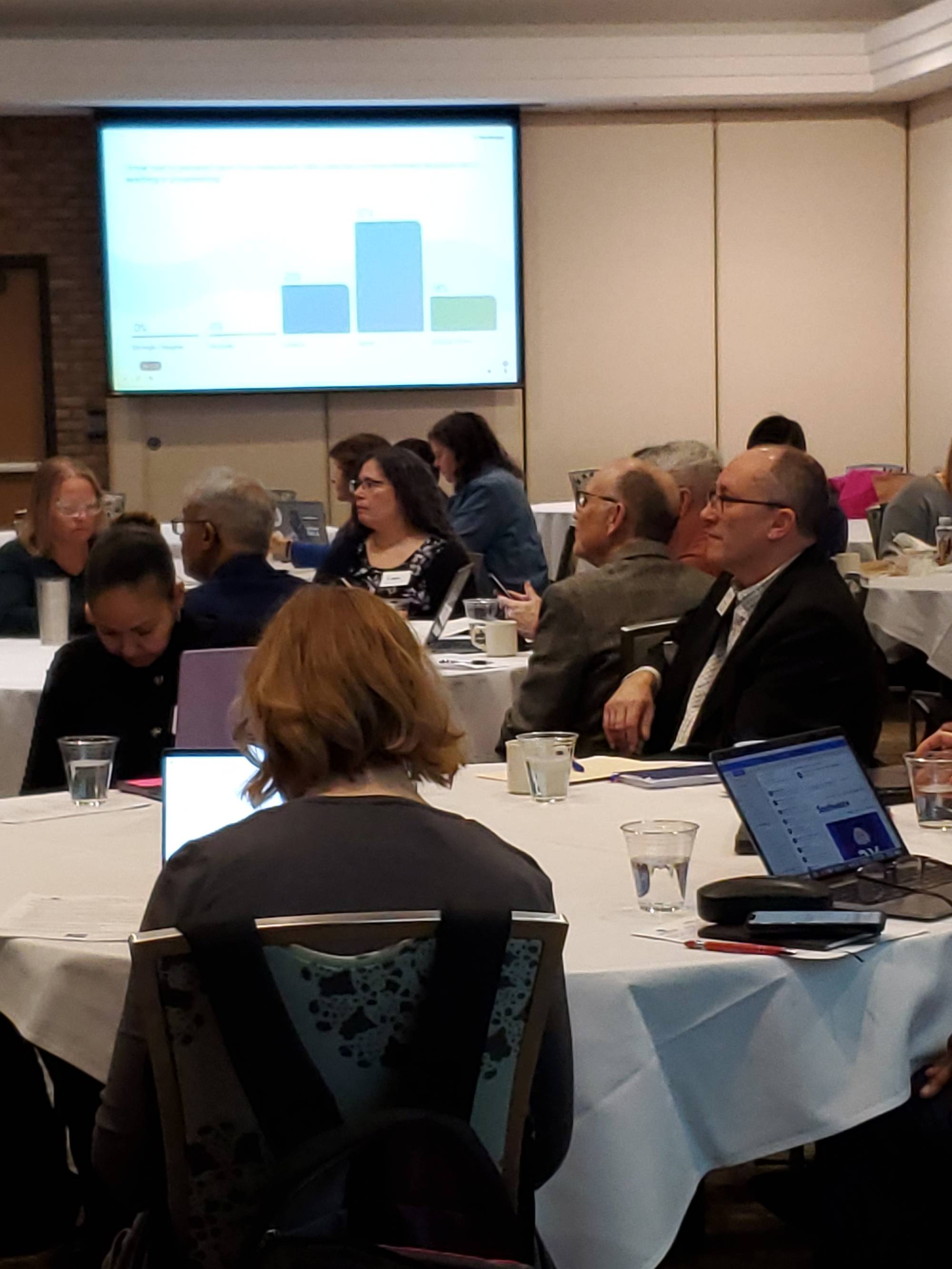
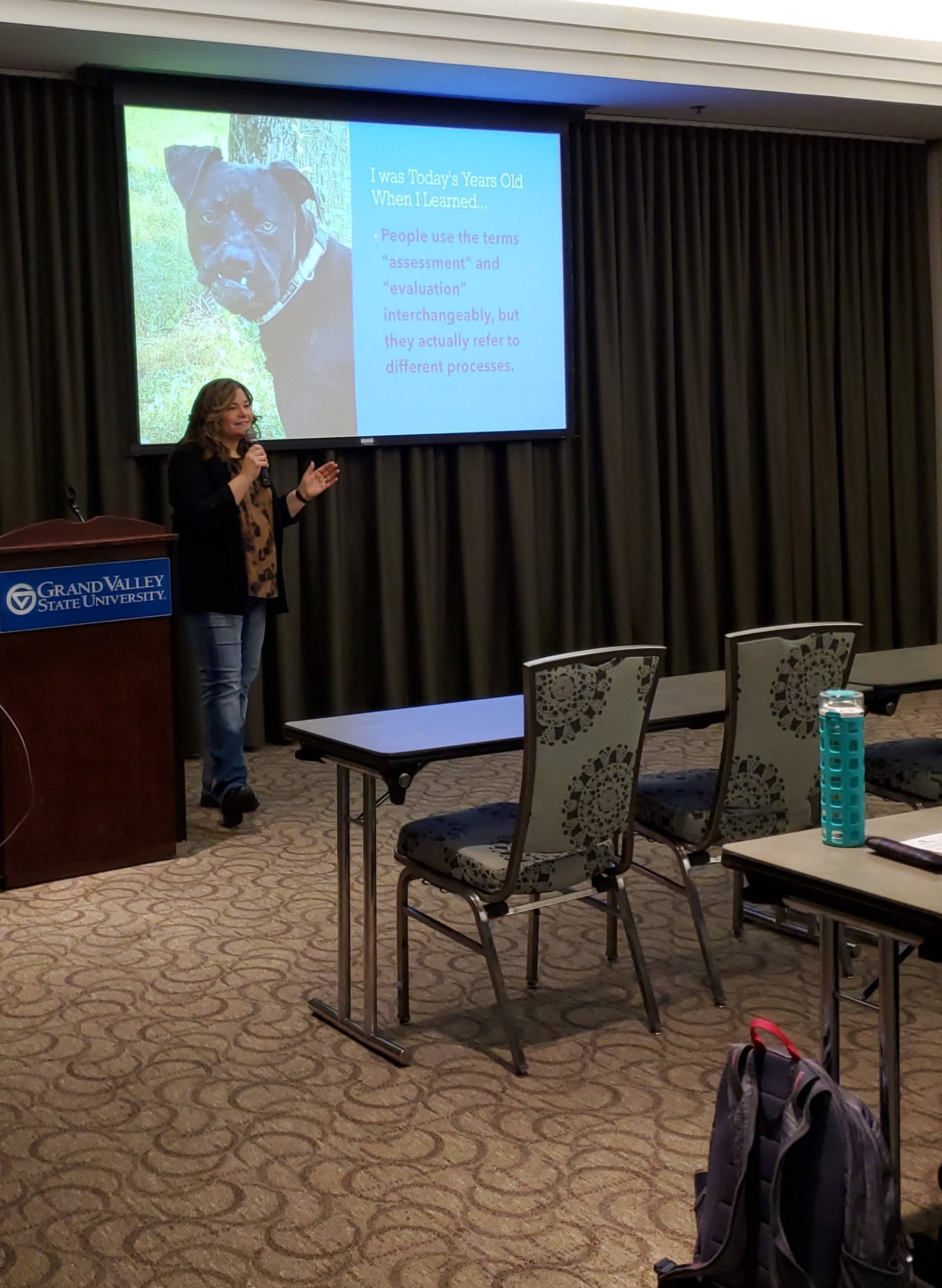
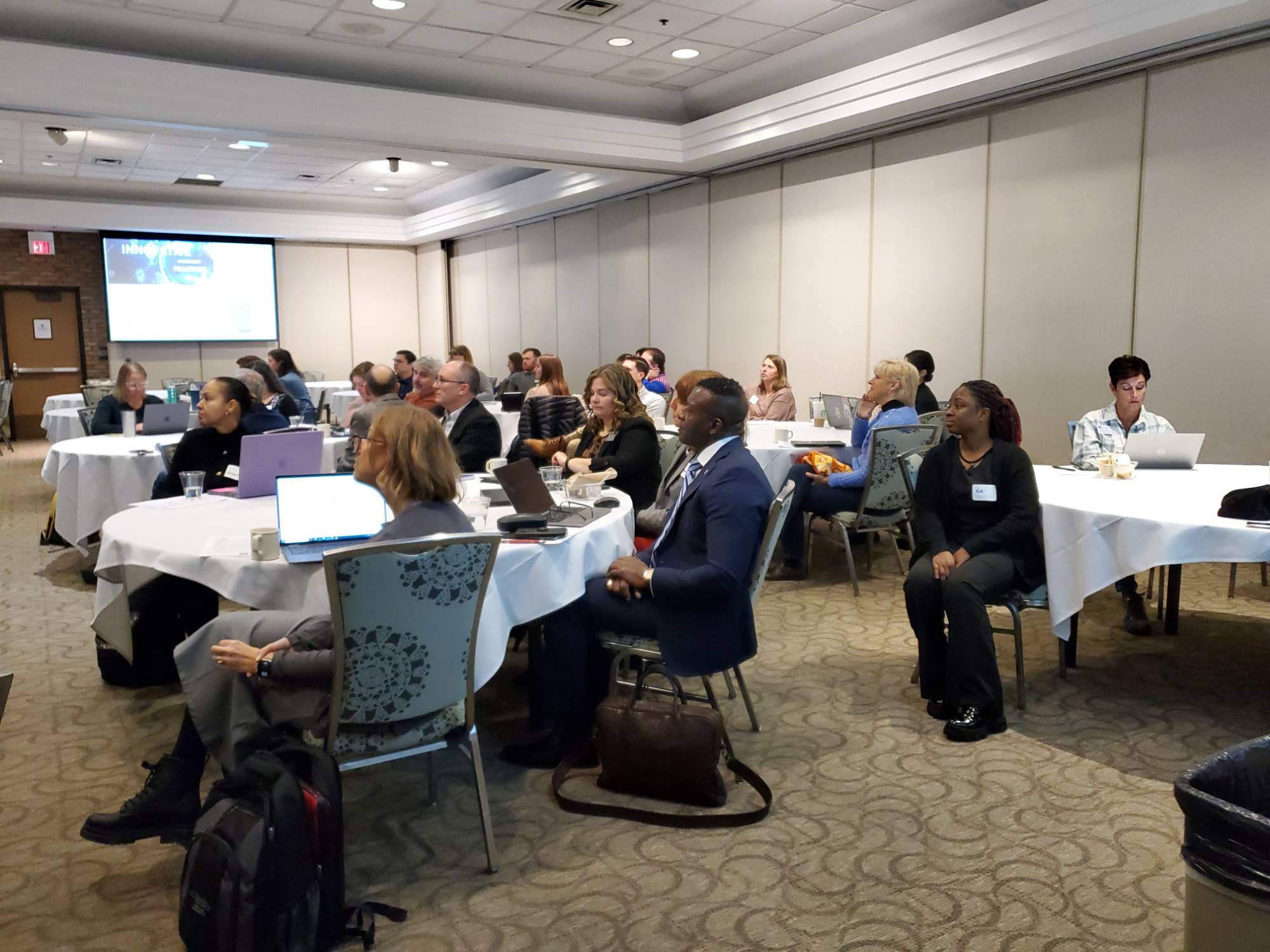
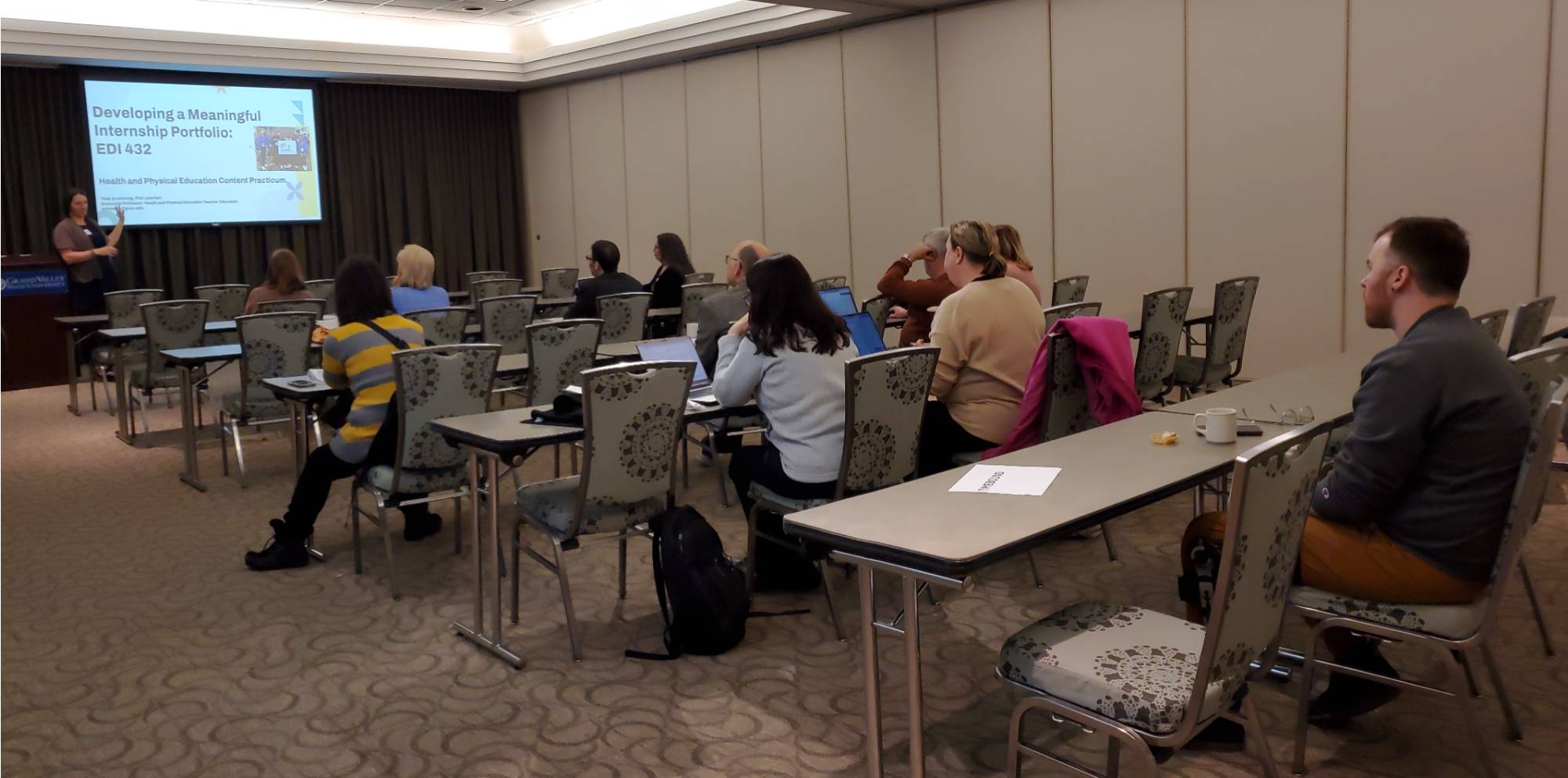
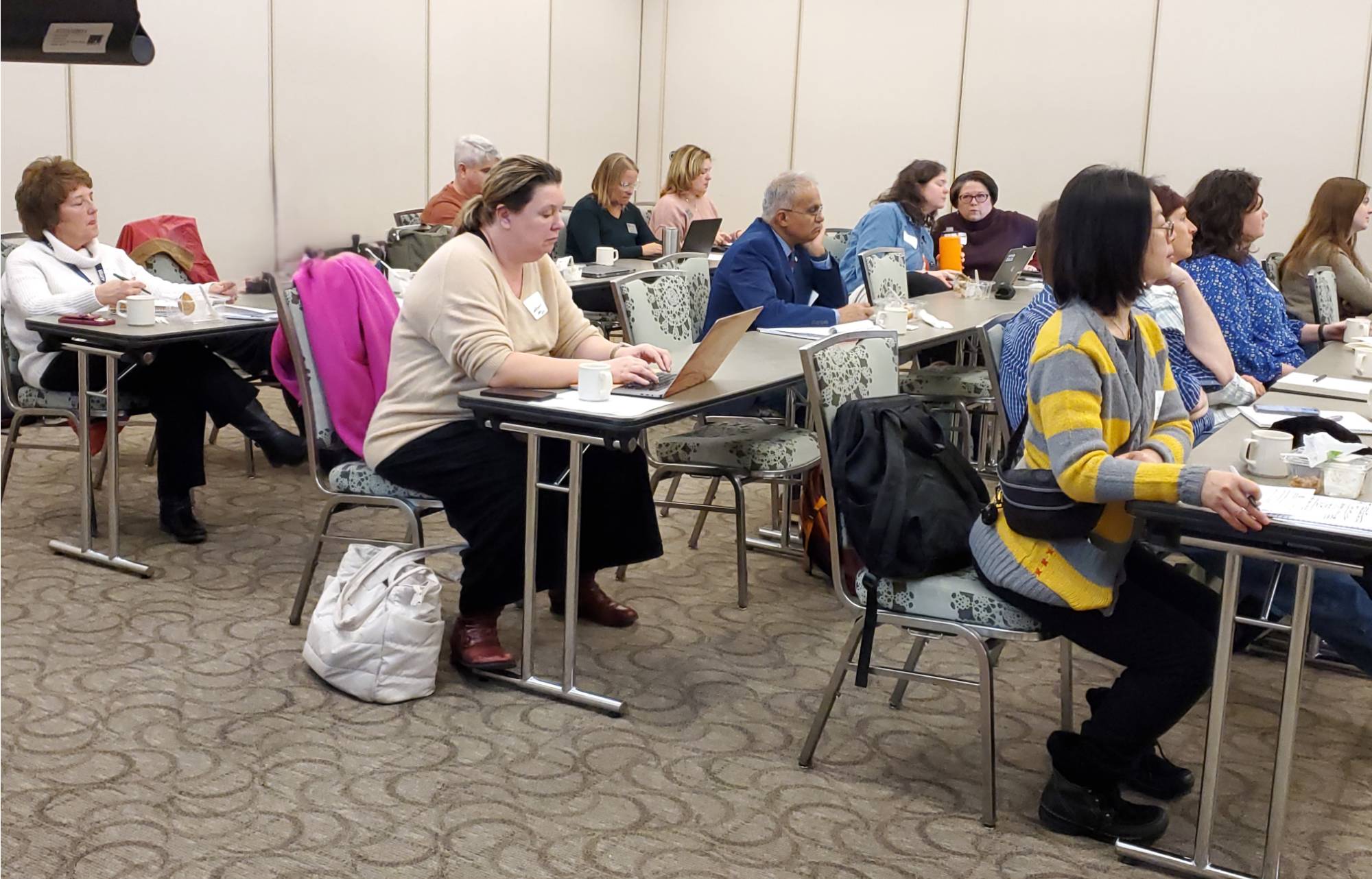
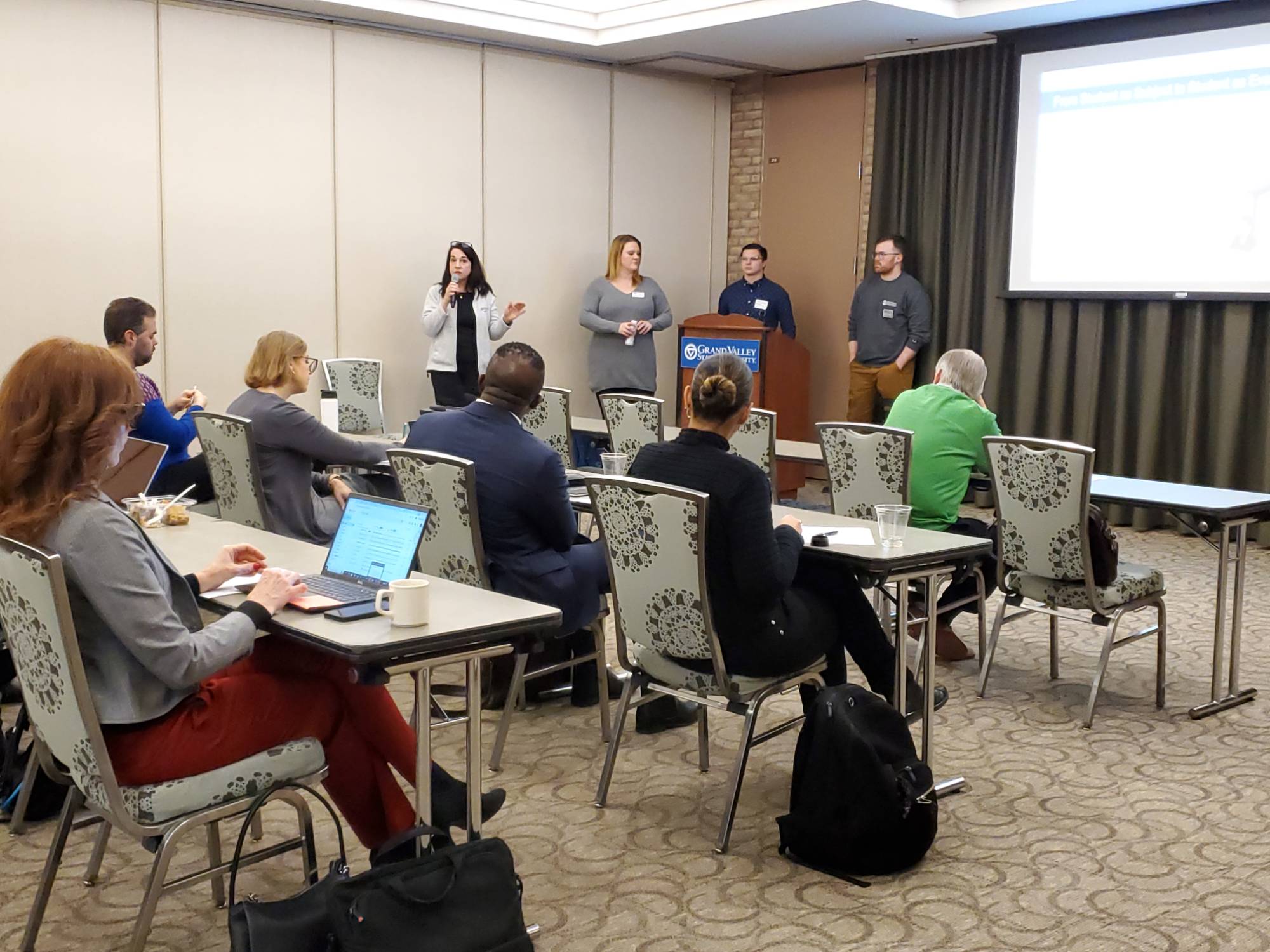
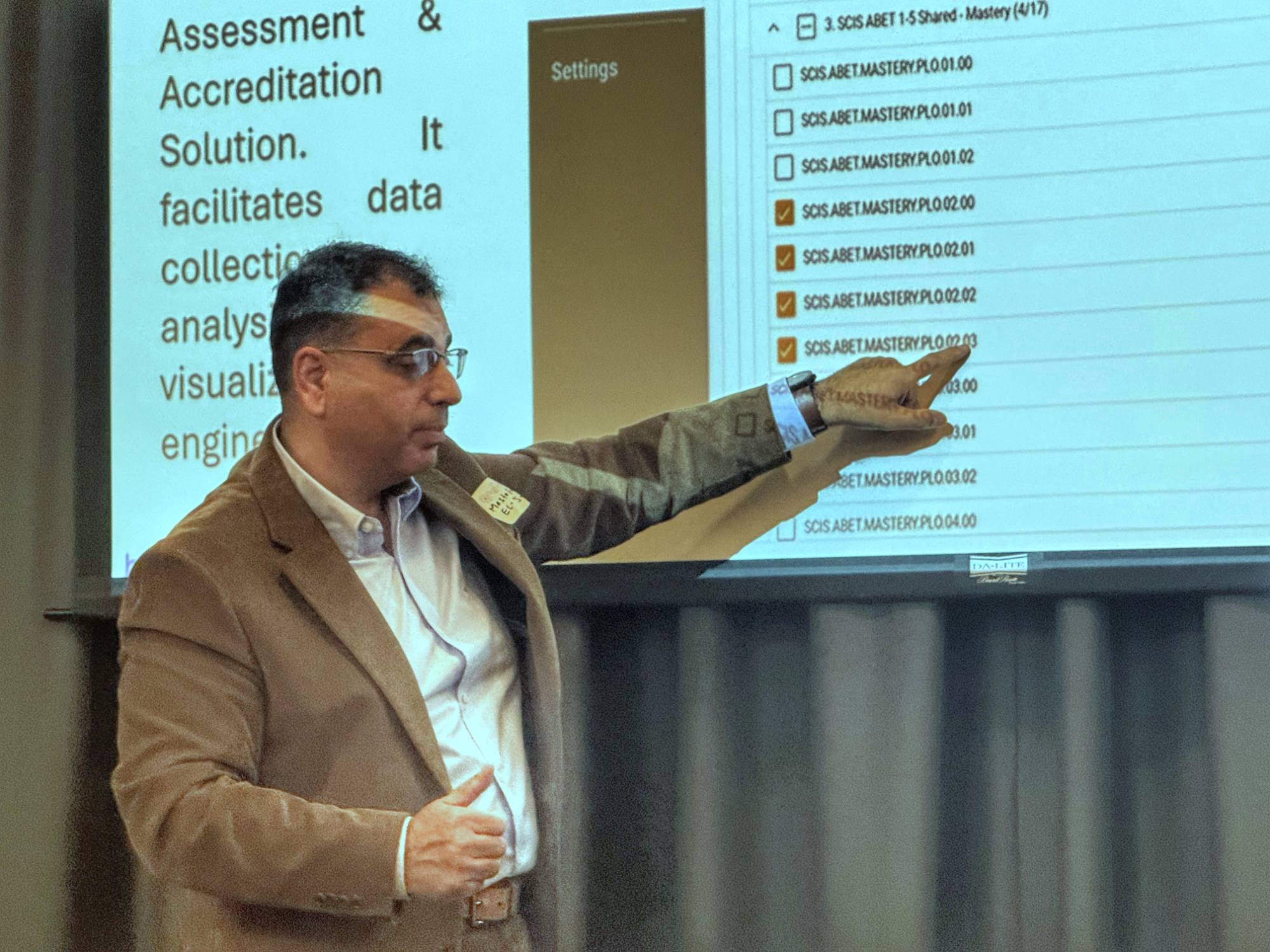
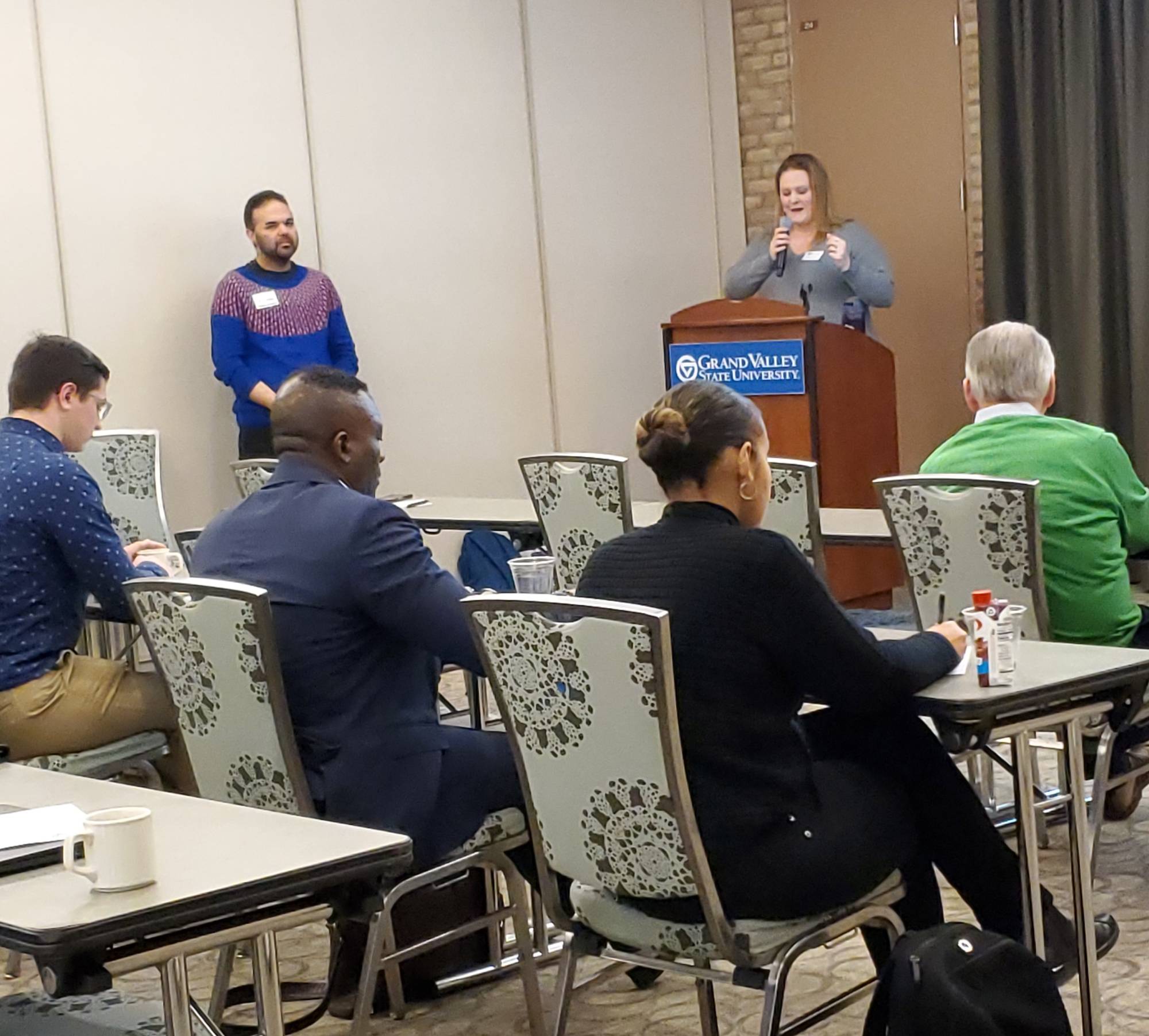
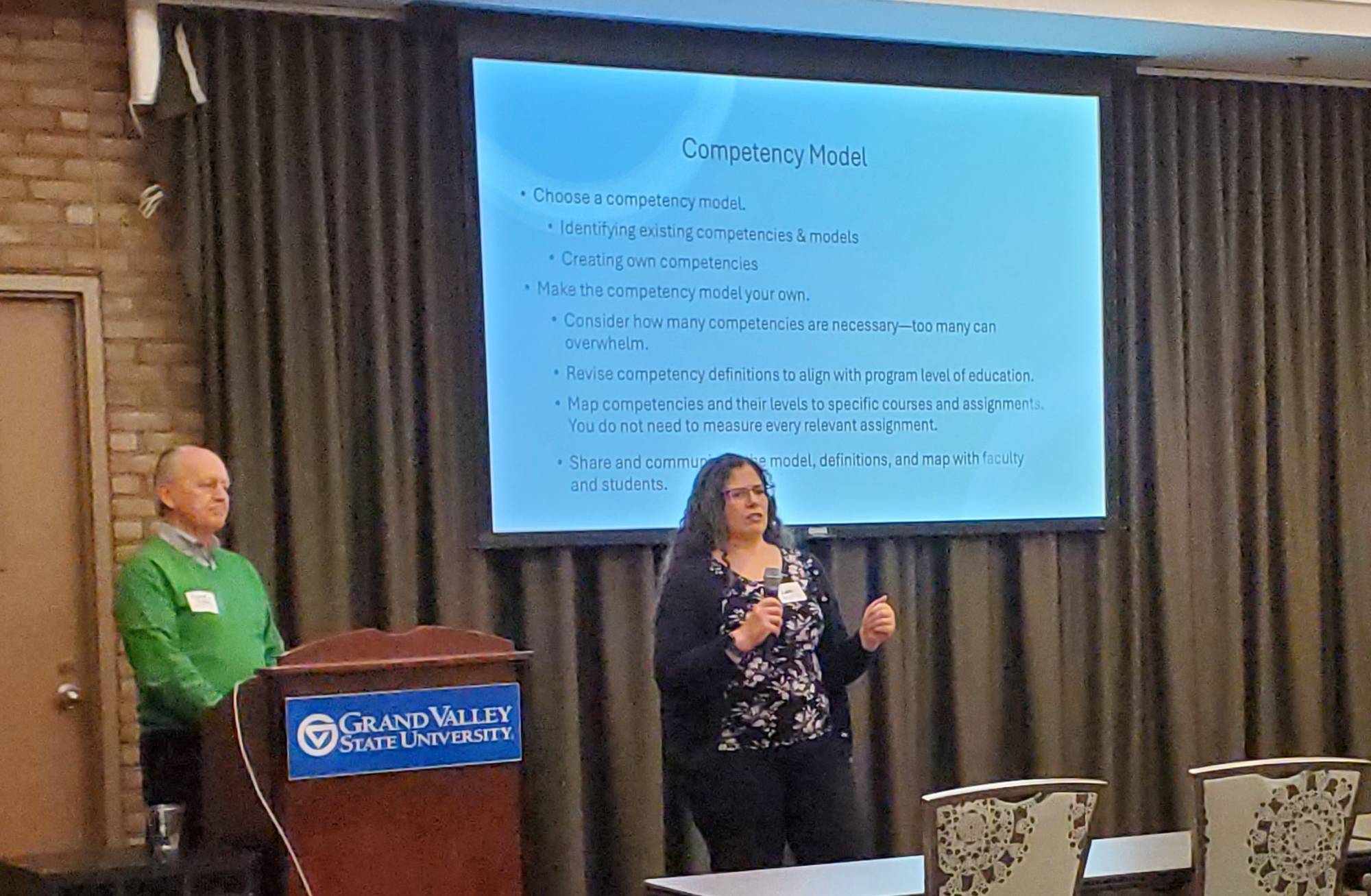
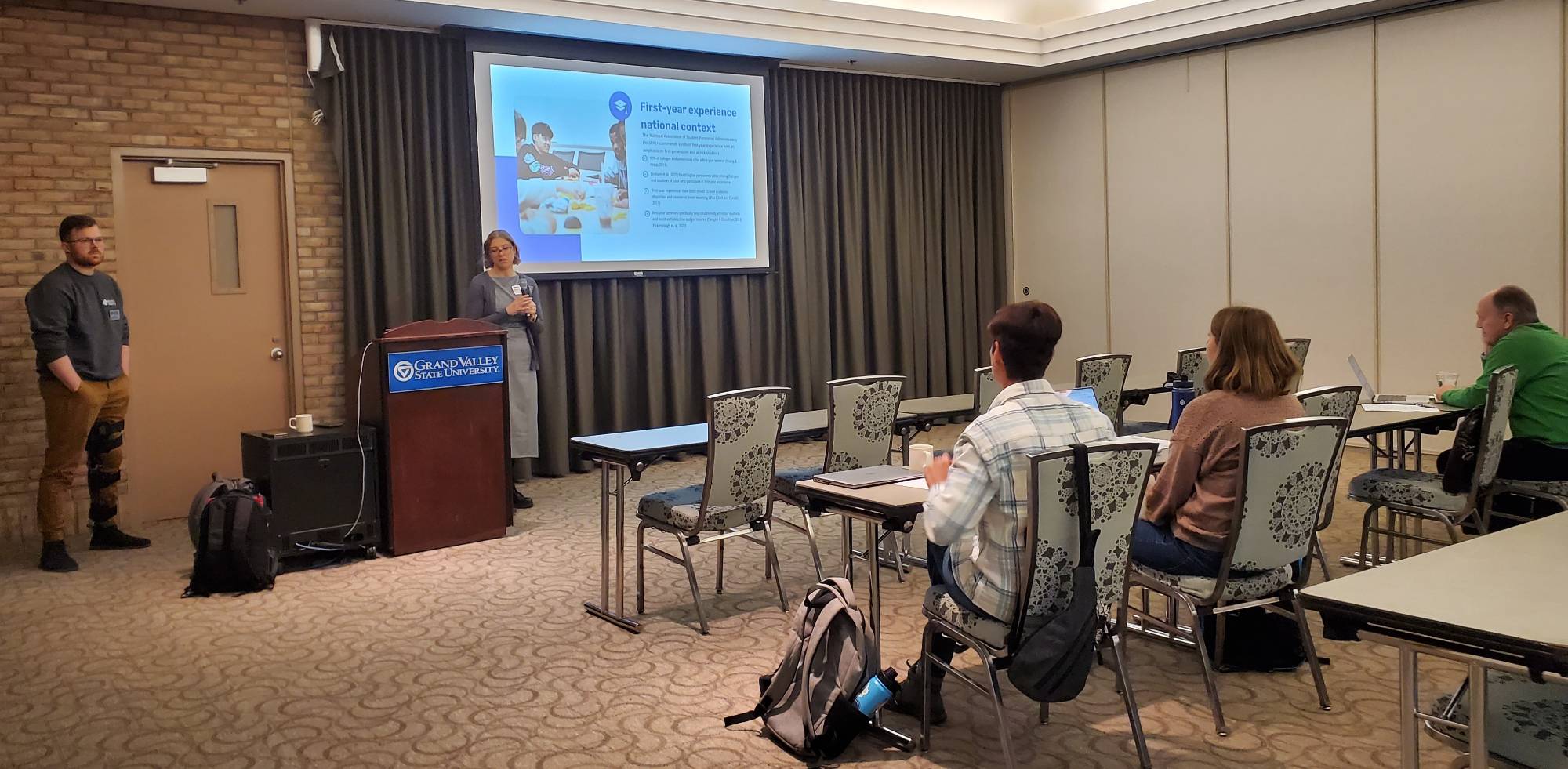
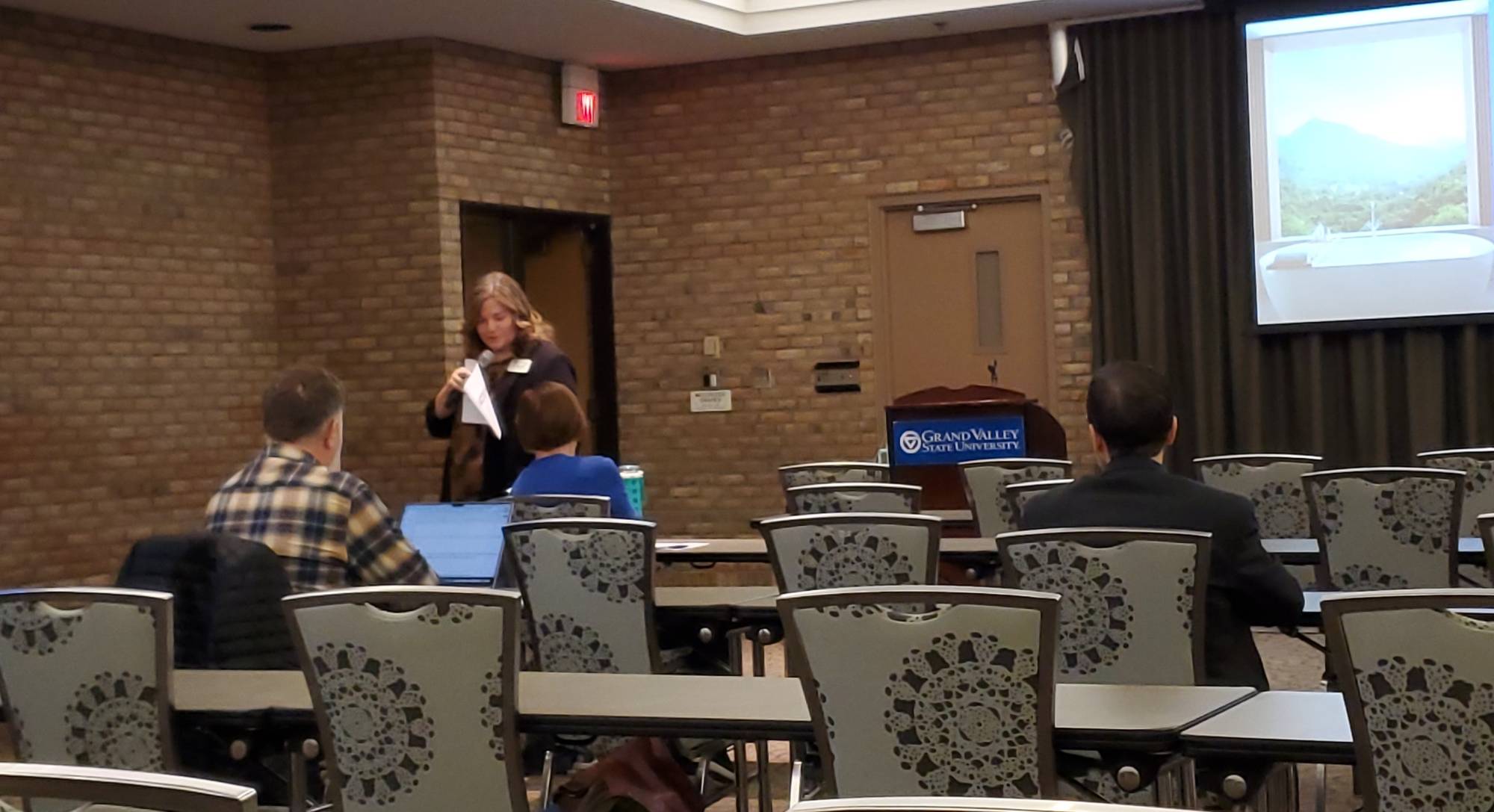
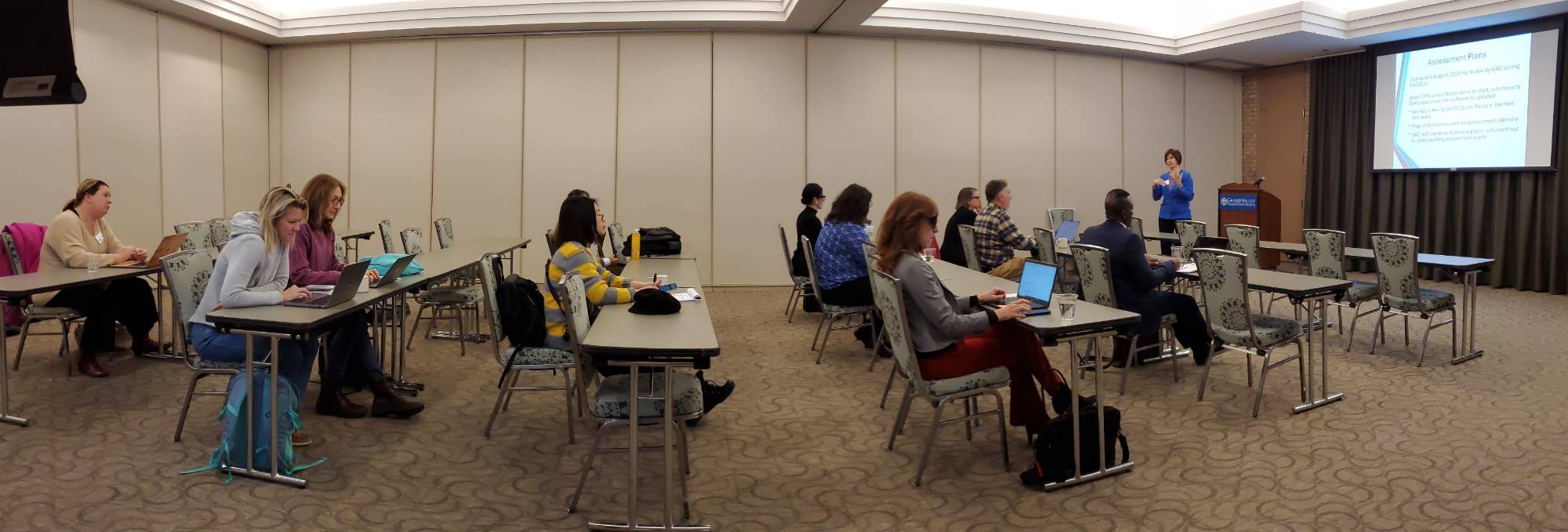
Program Schedule
Friday, January 10, 2025
Eberhard Conference Center (room 215), Pew Grand Rapids Campus
- 8:00 am - 8:30 am - Registration (EC215) and Breakfast (EC215-CDEF)
- 8:30 am - 8:55 am - Welcome and Opening Keynote (EC215-CDEF)
- 9:00 am - 11:35 am - Faculty- and Staff-led Concurrent Sessions (35-minute sessions - full details below)
- 11:40 am - 12:30 pm - Lunch and Round Table Discussions (see below for table hosts and topics; EC215-CDEF)
- This last session is intended to be open-ended. During this final lunch period, attendees are welcome to join the round table discussions or simply network with colleagues at open tables while enjoying lunch.
- An example schedule could look like the following:
- 11:40-11:50 am Pick up Boxed Lunches
- 11:50-12:05 pm Round Table Discussion – Round 1
- 12:05-12:20 pm Round Table Discussion – Round 2
- 12:20-12:30 pm Post-conference Survey and Networking with Colleagues
8:30 - 8:55 am Welcome and Opening Keynote
I Know Why the Caged Bird Sings
Sean Lancaster, Associate Vice President for Academic Affairs
9:00 am - 9:35 am Concurrent Sessions
Multiple Approaches to Including Students as Partners in Your Assessment Practices
Bradford Dykes, CLAS Voyage Student Success Data Director
Rachel Campbell, Associate Professor, CLAS Voyage Curriculum Director
Susan Mendoza, Center for Undergraduate Scholar Engagement Director
Keigh-Cee Bell, Tutoring and Supplemental Instruction Director
Assessment and improvement of students’ learning and success is a shared responsibility between faculty, staff, and administration at institutions of higher education. In recent years, assessment leaders have argued for institutions to assess in ways that intentionally consider different student populations' various needs and outcomes (Montenegro & Jankowski, 2017; Henning et al., 2022). Our processes for the assessment of teaching and learning must be both culturally-responsive and equity-centered (Hudley & Keith, 2023). Institutions can do this by including students as partners in their assessment work (Hudley & Keith, 2023; Driscoll et al., 2021; Singer-Freeman & Robinson, 2020). That is, moving from models where assessment is done to students to one where students collaborate with faculty, staff, and administrators throughout the assessment process. This presentation provides examples of how we have included students as assessment partners in curricular, co-curricular, and support activities.
Simplifying SLOs & SCOs: Clear Outcomes for Student Affairs
Kate Harmon, Assistant Vice President for Student Affairs, Well-being and Inclusion
Crafting Student Learning Outcomes (SLOs) and Student-Centered Outcomes (SCOs) in student affairs doesn’t have to be complicated. This session, "Simplifying SLOs & SCOs: Clear Outcomes for Student Affairs," offers a practical approach to designing outcomes that are clear, meaningful, and measurable without including "everything and the kitchen sink." Participants will learn how to focus on concise, impactful goals that are centered on students' needs and align with their success. Through real-world examples, we’ll explore how to write effective SLOs and SCOs, use action-oriented language, and connect outcomes to assessment strategies. Whether you’re new to outcomes or looking to refine your approach, this session will help you simplify the process and create outcomes that drive meaningful learning and improvement.
9:40 am - 10:15 am Concurrent Sessions
More Than Usage: Assessing the Impact of Academic Support Programming
Keigh-Cee Bell, Director of Tutoring and SI
AJ Young, SI Specialist
While showing trends in student engagement and usage can be helpful information for support services, it does not tell you if you are effective in the services you provide. Are you meeting your outcomes? Are you meeting the needs of your current student body? Most importantly, are you having a positive impact?
In this presentation, we will share pieces of the Tutoring and Reading Center's 2023-24 assessment report, as well as our plans for future assessment. Attendees will learn about data collection using Navigate, Institutional Analysis, and surveys, what data is useful (and what isn't), how to use data to tell a compelling story about your program, and what data your stakeholders actually want to see.
Developing a Meaningful Internship Portfolio: EDI 432
Tess Armstrong, Associate Professor of Health and Physical Education
During their final semester, Health and Physical Education students must demonstrate their proficiency in content knowledge, planning and implementation, assessment, and professionalism during their semester-long internship. Their internship is a 40-hour per week teaching role, so assessment during this semester should be embedded in practices the students are already doing, not adding significantly to their workload, as the role of a PK-12 public school teacher is already a strain on work-life balance.
In this session, participants will:
Be introduced to the final rubric that is used to assess HPE majors during their internship at GVSU. This assessment is used for teacher accreditation with the Michigan Department of Education, and is aligned with the Society for Heath and Physical Educators (SHAPE) America Health & Physical Education Teacher Education standards.
Participants will be introduced to the final portfolio that HPE students build to demonstrate their mastery of content, pedagogy, planning and implementation, assessment, and professionalism. This is a project that empowers students to collect evidence of what they are already doing in their internships to highlight how they think they are meeting the professional standards.
This portfolio has significantly changed the assessment process in the seminar course, with the responsibility of the evidence falling on the students. Students describe feeling empowered and trusted with this assessment strategy.
You are encouraged to provide feedback and insights to continue to make this portfolio assignment meaningful and relevant for future teachers.
10:20 am - 10:55 am Concurrent Sessions
Assessment Updates from the University Assessment Committee
Julie Henderleiter, Chair, University Assessment Committee and Associate Professor, Chemistry
The UAC put a pause on assessment planning and reporting during COVID and used the time to re-envision assessment processes for campus. Our new process is more streamlined, asking programs to focus on a few Student Learning Outcomes (SLOs) or Student-Centered Outcomes (SCOs) at a time. The intention is for programs to (1) deliberately collect data to demonstrate excellence, (2) identify areas for improvement, and (3) use assessment results to advocate for needed resources and make positive changes. Assessment reporting will resume soon. Reporting will include increased emphasis on reflecting on results, planning next steps, then reporting on the results of those next steps - closing the loop. There is also a new ‘Process 2’ mechanism for externally accredited programs. When there is significant overlap between how Student Learning or Student-Centered Outcomes are assessed for accreditation and for UAC, programs may request to use their external accreditation reports to meet most UAC expectations. This session will provide an update on the new processes and expectations for assessment plans and assessment reporting. There will be plenty of time for questions.
Assessing the Impact of EDH 181: A Pathway to Student Success and Belonging
Jessica Saint Amour, Assistant Vice President, Office of Student Support and Belonging
Bradford Dykes, Associate Professor, CLAS Voyage Student Success Data Director
Rachel Campbell, Associate Professor, CLAS Voyage Curriculum Director
The Social Science Lab (SSL) and CLAS Voyage at GVSU are collaborating with the Office of the Provost and the Oliver Wilson Scholars (OWS) Program to assess requiring EDH 181, Navigating College Success for their first-year students this year.
This first-year seminar course is designed to foster student preparedness, belonging, and academic success. By requiring this course as part of OWS’s holistic support framework, it introduces essential academic, social, and personal skills while addressing barriers that may impede first-year students’ success.
Building on research that links first-year seminars to improved retention and academic performance, these two projects examine EDH 181’s learning outcomes and impact on student success. Key learning outcomes include:
- Understanding and navigating the expectations of college-level academics and institutional structures.
- Developing self-advocacy skills to address academic and personal challenges.
- Cultivating a sense of belonging and community through social integration.
- Enhancing critical thinking and adaptability through course assignments.
SSL’s mixed-methods assessment includes classroom observations, syllabus reviews, instructor and student interviews, and data analysis. CLAS Voyage assessment includes a survey of students’ perceptions of the classroom environment they experienced. The combination of these two evaluation approaches will allow for the exploration of how these learning outcomes contribute to key indicators of success, such as GPA, retention, and persistence, while identifying the most impactful aspects of the course. Focus areas include demystifying academic expectations, decoding institutional systems, and closing cultural capital gaps.
Preliminary findings will guide potential curriculum expansions beyond the OWS program, benefiting a broader student population. This initiative supports GVSU’s commitment to equitable student success and aligns with national best practices for first-year experiences, fostering broader discussions on strategies to improve first-year student outcomes and long-term academic achievement.
11:00 am - 11:35 am Concurrent Sessions
Insights and Best Practices Gained from Implementing the EAC Blackboard Assessment and Accreditation Solution
Mostafa El-Said, Professor of Computing and Director, Assessment and Accreditation
The presentation highlights the valuable insights and best practices gained from implementing the EAC Blackboard Assessment and Accreditation Solution. This innovative tool has enabled us to streamline the collection and analysis of assessment data for our computing programs, helping us not only meet the ABET accreditation requirements but also promote continuous improvement and enhance student success.
By attending this presentation, participants will be able to:
1. Recognize the benefits of leveraging EAC Blackboard Assessment and Accreditation Solution in ABET-accredited programs.
2. Implement best practices for adopting a continuous improvement strategy in program assessment and accreditation to foster a data-driven decision process centered on student success.
MHA Competency Assessment Using EAC
Raymond Higbea, Associate Professor of Health Administration & MHA Program Director
Lara Jaskiewicz, Associate Professor of Health Administration & MHA Program Director
The Master of Health Administration (MHA) program is a professional health administration master degree program accredited by the Commission on Accreditation of Health Management Education (CAHME). CAHME uses a competency-based approach that requires accredited programs to measure the competency attainment of their individual students throughout the educational experience. The MHA program has been measuring student competency attainment through Blackboard for approximately 10 years, first using the legacy OAT system, then switching to the EAC measurement tool when it became available about 5 years ago. During this session we will describe the process the MHA program uses to measure the competency attainment of our students, how we report the results to our students, and how we use these results for quality improvement of the MHA program.
11:40 am - 12:30 pm Round Table Discussion Topics and Hosts
Evaluating Student Performance Outcomes with Blackboard and EAC Visual Data
- Vince St. Germain, Senior Instructional Design Specialist, and David Nivala, Instructional Technology Project Specialist
Fun Assessment Tools
- Sean Lancaster, Associate Vice President for Academic Affairs, and Ruth Yeboah, Strategic Planning, Assessment, and Accreditation Graduate Assistant
Students Mapping Learning Objectives: An In-Class Activity
- Maggie Goss, Assistant Director, Pew Faculty Teaching and Learning Center
A big THANK YOU to our partners, Blackboard Anthology and EAC Visual Data, for sponsoring our Assessment Conference food and beverages!
